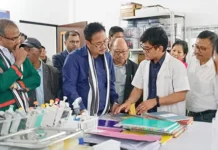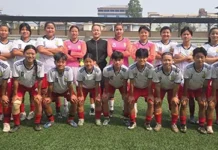[Nyatum Doke]
The word ‘development’ is one of the most often used terms in modern lexicology. But the problem with the term development is that it is open ended and has no proper yardstick; and the existing measuring tool is based on mainstream development view, which calls for economic growth, industrialisation, infrastructure expansion etc.
For example, if we speak of tourism, for many it means hotels, resorts, four-lane roads to the interior areas and the heart of the unexplored state. Do we need that?
Personally, I would prefer trekking into the wilderness, rather than bombing mountains to the ground for roads. I would rather stay without a network and internet for a day or two than have 5G in the deep woods, away from civilization. I don’t want civilization to disturb or distract me – not out there.
I often wonder: when there’s talk of ecotourism in a place like Arunachal, isn’t it an oxymoron, a paradox? First, we call for tourism, and then label it rural or ecotourism. The sad reality is, we destroy the natural setup, only to recreate it artificially through museums, ‘model’ houses, and curated rural experiences. Eco-resorts, eco-adventures, rural tourism, eco-parks – these have all become buzzwords. But my question is: why not just leave nature as it is, and enjoy the adventure and thrill it offers in its own raw form?
Once, I was part of a programme in Konnu village, one of the remotest in Longding district. An official, upon arrival, remarked, “Network nahi hai, bechare yahan ke log kaise rehte honge?” (There’s no cellular network – how do these poor people even survive?). To that, I responded, “Do you think they need mobile phones to be happy? Just look at their smiles – how pure and undistracted they are, unlike us, always glued to our phones.”
We impose ‘development’ on villagers and rural communities – development as defined and conceptualised by so-called intellectuals. But we rarely pause to ask: what does development mean to them?
First, we chase development, bulldoze mountains, set trees ablaze, distress and displace local communities. Then later, we realise – oh, it should be sustainable! But with the stewardship of land, rivers, and forests as sacred responsibility, weren’t they already living a sustainable life?
And then, we try to explain ‘national security’ to people and juxtapose development with national security. Alas, they don’t even know the term ‘nation’s’ existence. For them, the jungle was a field to wander freely for survival. The rivers and the air were as free as their souls.
Development is good – but we must ask: what kind of development, how much development and for whom – in the truest sense? (The contributor is DIPRO, Lohit)


